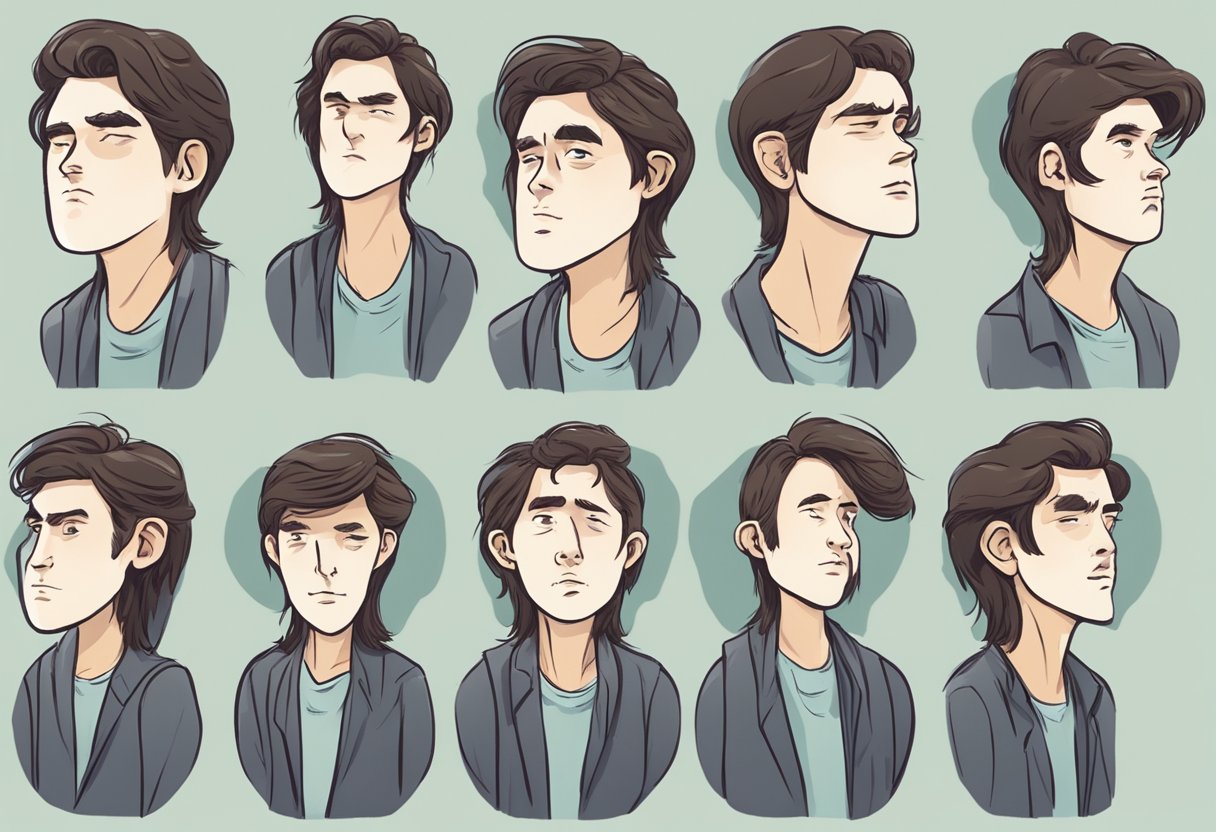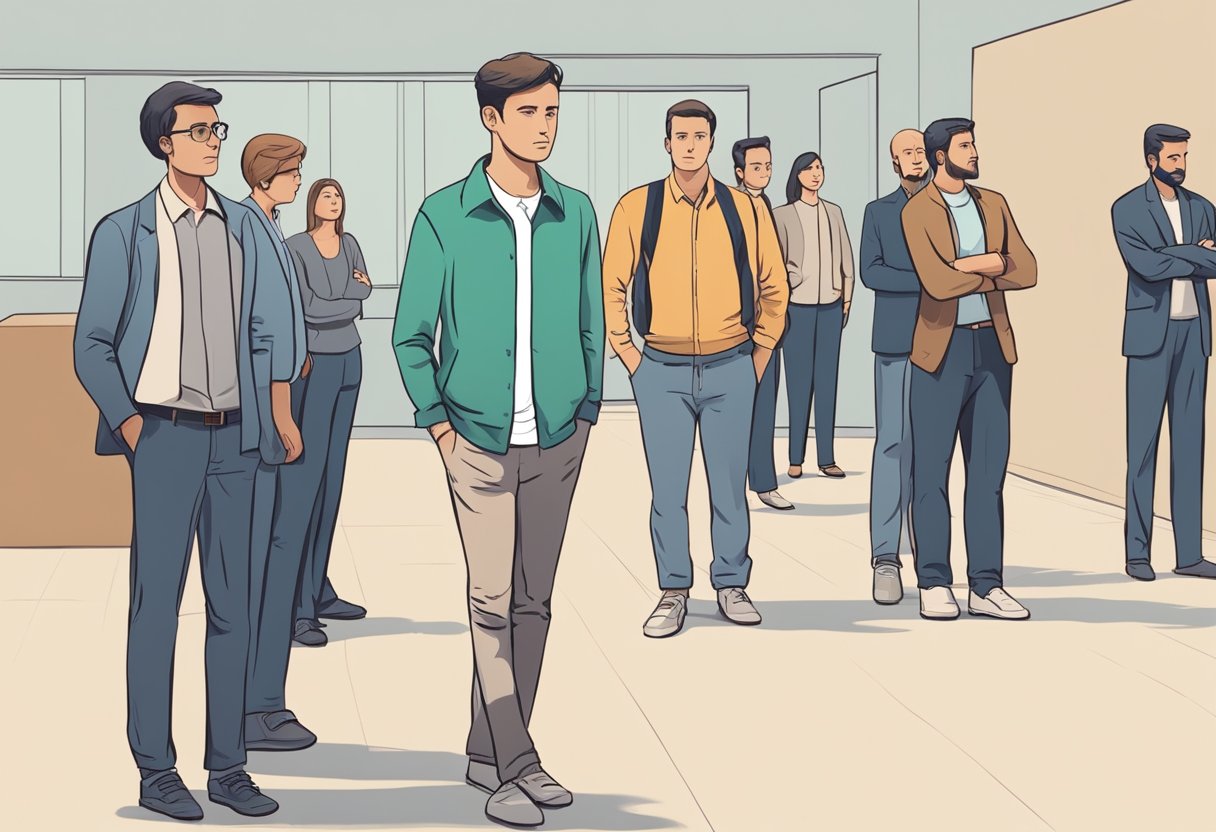Perceptions of attractiveness are complex and can be influenced by a myriad of factors ranging from physical appearance to personality traits. Unattractiveness, often perceived from both personal and societal perspectives, does not solely hinge on physical attributes but also on how individuals carry themselves and interact with others. Recognizing these signs is the first step towards personal improvement and boosting self-confidence.

Physical attributes such as posture, grooming, and personal hygiene play a significant role in how an individual is perceived. Poor posture may give off a lack of confidence, while an unkempt appearance can signal a disregard for self-care. Fashion choices, hairstyles, and skin care also contribute to the overall impression one makes. For instance, clothing that does not fit well or suits one’s body shape, or a hairstyle that does not complement one’s facial features, could detract from one’s appeal.
So, let’s talk about the 16 signs you are unattractive person. If you recognize these signs in you, you can easily improve your appearance to become an attractive person.
Similarly, personality traits and behaviors can either attract or repel social interactions. Constant negativity, for example, can overshadow even the most aesthetically pleasing features. Signs of overall attractiveness or unattractiveness in this realm may include a lack of charisma, difficulty in maintaining positive relations, or an evident lack of confidence in one’s own abilities. Understanding these signs helps not only in improving one’s desirability but also in fostering healthier self-esteem and interpersonal relationships.
Understanding Attractiveness
Overall attractiveness is a subjective measure that encompasses both physical features and personality traits. It varies greatly across different cultural and personal standards. Beauty standards often dictate what is considered physically appealing, such as symmetry of facial features, but these standards are constantly evolving and are influenced by media, geography, and time.
Physical Attractiveness: Typically includes clear skin, balanced facial features, and a healthy physique. It is important to remember that these attributes are viewed through the lens of current societal standards, which can differ worldwide.
Inner Beauty: Refers to qualities such as kindness, intelligence, and positivity. Inner beauty can significantly impact one’s external allure, as people are often attracted to what lies beneath the surface.
Perspective plays a crucial role in how attractiveness is perceived. What one person finds appealing, another may not. Attractiveness is not a one-size-fits-all concept but rather a blend of both innate features and characteristics that exude from within.
- Factors Influencing Attractiveness:
- Facial symmetry
- Societal norms
- Confidence and body language
- Personal hygiene and grooming
Considering all these elements, it’s evident that attractiveness is multidimensional. Individuals may improve their appeal by grooming and taking care of their health, but fostering inner beauty is just as vital. Understanding that attractiveness extends beyond the physical will help shift focus towards enriching one’s character and personal growth.
Physical Appearance Factors
Physical appearance significantly impacts first impressions and self-perception. The following subsections outline specific areas which contribute to one’s attractiveness, where attentive personal care can enhance overall appearance and boost confidence. Let’s talk about the physical aspects of 16 signs you are unattractive.
Hair and Haircare
Hair health is crucial for a well-groomed appearance. Healthy hair should be free of dandruff, which can be addressed with proper shampoos and conditioners. A hairstyle that suits one’s face shape can enhance attractiveness.
Skin and Skincare
Skincare aims to achieve clear, healthy skin. Regular cleansing can combat acne, while moisturizing prevents dryness. Sun protection is also vital for skin longevity.
| Skincare Routine Step | Purpose |
|---|---|
| Cleansing | Removes dirt and excess oils. |
| Exfoliating | Clears dead skin cells. |
| Moisturizing | Hydrates and prevents flaking. |
| Sun Protection | Shields skin from harmful UV rays. |
Facial Features
Maintaining oral hygiene is essential; bad teeth or dental issues can be prevented with regular brushing, flossing, and dental check-ups to keep a confident smile.
Hygiene and Grooming
Body odor, nails, and bad breath are critical facets of hygiene. Daily showers, using deodorant, keeping nails clean, and regular brushing contribute to one’s cleanliness and social appeal.
Physical Fitness
Maintaining a healthy weight and body shape through a nutritious diet and physical activity reflects in one’s physical appearance. Overlooking excessive body weight can affect the perception of attractiveness.
Fashion and Clothing Choices
Appropriate fashion choices that fit well can enhance an individual’s appearance. Coordinated outfits that complement body type exude personal grooming and attention to detail. These can add value and turn you into an attractive woman or attractive guy. And of course, boost your low self esteem in the opposite sex.
Posture and Body Alignment
Proper posture and body alignment signal confidence. Activities like yoga or stretching exercises can correct poor posture over time, improving presence and bearing.
Behavioral and Personality Traits

In the realm of attractiveness, behavioral and personality traits play an equally important role as physical appearance. The way one conducts themselves and interacts with the world can reflect either positive or negative aspects of attractiveness. These traits range from the display of confidence to the manner in which one controls their emotions.
Attitude and Behavior
Attitude and behavior are direct indicators of attractiveness. A person with a positive attitude who behaves respectfully towards others tends to be more appealing. In contrast, displaying a negative attitude or being rude can quickly diminish one’s attractiveness. It is not just what people express, but also how they carry themselves in various situations.
- Negative Traits
- Pessimism: Consistently viewing situations with a negative lens
- Disrespect: Failing to treat others with the consideration they deserve
Confidence and Self-Esteem
Confidence and self-esteem are at the core of personal attractiveness. Those with high self-confidence and self-esteem value themselves and their abilities, often translating into a magnetic presence. Conversely, signs of low confidence, like being overly self-conscious, can be perceived as less attractive.
- Self-Assurance Measures
- Body language: Straight posture, eye contact, and open gestures
- Speech: Clear and concise, without underestimating one’s contributions
Social Interaction Skills
Excellent social skills and charm are traits of individuals who are considered attractive in social settings. They listen actively, contribute thoughtfully to conversations, and exhibit a sense of humor that is inclusive rather than offensive. Those lacking these skills may find it challenging to connect with others, affecting their perceived level of attractiveness.
- Engaging Qualities
- Empathy: Understanding and sharing the feelings of others
- Humor: Ability to communicate humor without demeaning others
Lifestyle Choices and Interests
Attractiveness is often augmented by varied interests and hobbies. A person who is passionate and motivated about their pursuits can exude an infectious energy. In contrast, a lazy lifestyle with limited interests might suggest a lack of motivation, potentially making one seem less attractive.
- Attributes of Attractiveness
- Passion: Deep enthusiasm for personal hobbies and interests
- Curiosity: A strong desire to learn and experience new things
Emotional Regulation and Control
The ability to regulate and control emotions is a sign of emotional maturity and can enhance attractiveness. Those who manage their emotions effectively, particularly under stress, tend to maintain their well-being. A lack of control, evidenced by inappropriate emotional outbursts, can be unattractive.
- Emotional Stability Indicators
- Resilience: Capacity to bounce back from adversity
- Composure: Maintaining calmness in challenging situations
Societal and Psychological Influences

In considering unattractiveness, it’s imperative to underline the impact of societal expectations and inherent psychological responses. These influences shape personal perceptions and interactions with others.
Rejection and Acceptance
Rejection often stings, and attractiveness can be a factor in social exclusion or inclusion. When individuals sense a lack of acceptance from peers, confidence may erode, reinforcing feelings of unattractiveness. Conversely, acceptance and compliments bolster self-esteem, potentially mitigating negative self-perceptions even in the absence of conventional beauty standards.
Mental Health and Wellness
The relationship between mental health and perceived unattractiveness can be cyclical. Those who view themselves as unattractive might experience lower well-being, leading them to withdraw from self-care practices that improve both physical and mental health. Wellness can be fostered through therapy and consistent self-care, promoting a positive self-image and potentially altering one’s internal narrative around beauty and worth.
Personal Value and Self-Image
An individual’s sense of personal value is closely linked to self-image and self-esteem. The internalization of beauty standards can cloud self-assessment, causing people to underrate their worth. Building a robust sense of confidence is crucial, as it encourages presenting the best version of oneself despite external indicators of attractiveness. The path to reinforcing personal value includes a heightened awareness of unique attributes and fostering an internal dialogue that emphasizes inherent worth beyond aesthetic appeal.
Final Takeaways

Recognizing signs that one might be perceived as unattractive can be the first step towards personal improvement. It’s important to note that attractiveness is subjective and often influenced by societal standards, which evolve over time.
Self-Improvement Tips:
- Physical Appearance: Maintain good hygiene, groom nails, and consider a hairstyle that complements one’s features
- Body Language: Adopt a confident posture; body language can speak volumes
- Style Choices: Dress in clothes that fit well and reflect one’s personal style
Personality Enhancements:
- Individuals should strive for a positive attitude, exercise kindness, and nurture their confidence, as these traits can significantly impact perception
Attractiveness is not merely skin deep; it’s a blend of confidence, personality, and self-care. Individuals are encouraged to focus on what they can control and make choices that boost their self-esteem and wellbeing. They should remember to be kind to themselves during the process of self-improvement.
Key Takeaways:
- Attractiveness is multifaceted
- Self-awareness leads to growth
- Kindness and confidence are attractive qualities
One’s attractiveness isn’t fixed; it’s an ever-changing perception that they have the power to influence through their actions and mindset.

